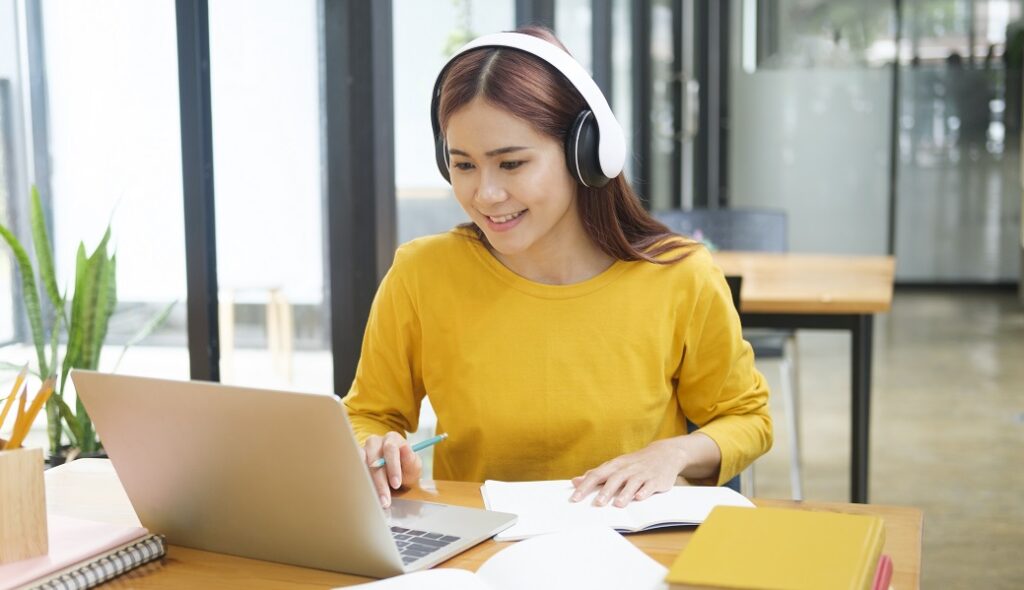As the workplace landscape is constantly changing, more and more people are discovering the benefits of working from home. Some people may still work for a company, but remotely from their homes, while others work solely out of their homes with their own business.
When working from home, there are items that you need to make your home office workspace professional and functional. Besides having a dedicated workspace, (even with little space) which is the most important piece of making working from home
These 7 essential items in your office setup are just what you need for your home office workspace to be professional, functional and productive.
- The Right Chair
- Stimulating Decoration
- Helpful Office Supplies
- Computer and Accessories
- Desk
- Data Backup
- Fun and Functional Storage
Before we get to it, a quick disclaimer:
The content may include affiliate links from advertisers. I may earn money from actions readers take on these links, such as a click, purchase, or subscribe. However, these are the tools that I recommend fully and have helped my blog and my work tremendously.
1. The Right Chair
Any job that requires sitting for long periods of time needs a good quality chair to help reduce back pain and improve posture. Bad posture can cause you to develop back and neck pain, or compound problems you may already have.
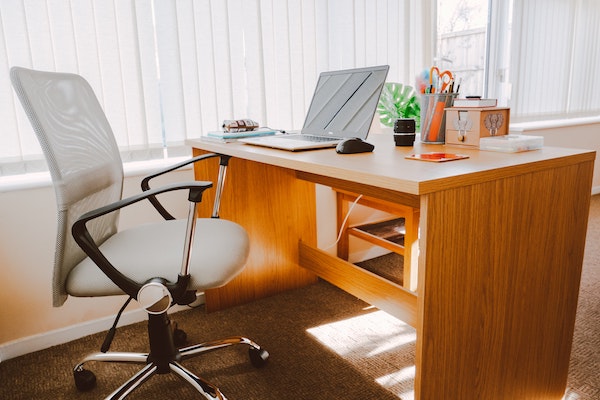
Look for chairs that are adjustable in seat height so your feet are flat on the floor and your arms are even with your desk height. The tilt of your chair should be adjustable as well. Ideally, you should be able to rest your arms comfortably on the armrests as you work. Also, look for chairs with lumbar support and adjustable backrests.
Available options span a wide price range, but you can find the right chair in the budget, mid-range, or premium levels.
2. Stimulating Decoration
Part of creating a great workspace includes surrounding yourself with décor that inspires you, motivating you to do your best work and push through those slumps we all have now and then.
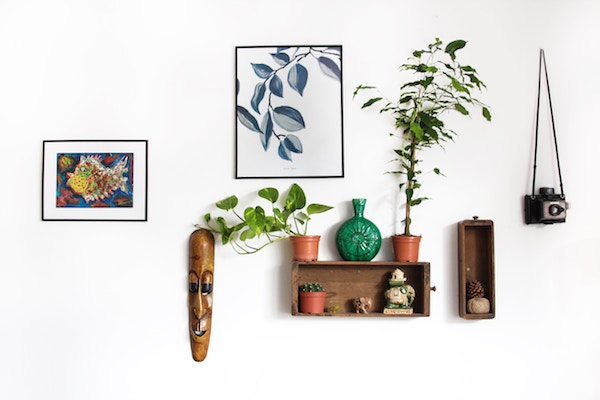
Lighting is vitally important for your eyes health as well as creating energy. Utilize natural light as much as possible and purchase a desk lamp with adjustable intensity and color temperature.
Add color with artwork and inspiring décor pieces to help stimulate creativity. Yellow and blue are considered stimulating but don’t leave out personal preference when choosing colors to inspire you.
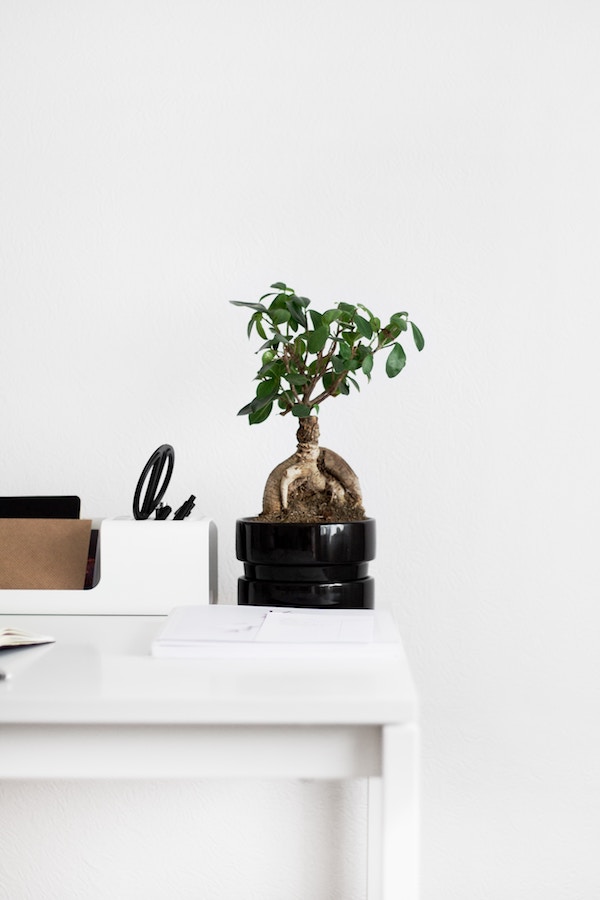
Candles and oil diffusers are popular for a reason. Scents have a lot of effect on your overall feelings (aromatherapy, anyone?) Peppermint and bright, citrus fragrances can be stimulating and uplifting whereas lavender is good for reducing stress.
Plants are another great way to breathe life into your workspace as they can reduce stress and boost creativity. Best plants for your home office include succulents and peace lilies.
Artwork, while proving color and aesthetic, can also provide motivation with words. People love motivational messages, so including some motivational wall-art in your décor can help you remember why you started this journey or project.
Cork boards are both functional and motivating. You can pin your daily to-do list as well as ideas for future projects. They can help you visualize, and physically arranging your notes can give you new impulses.
3. Helpful Office Supplies
Nothing beats good old-fashioned pen and paper at times. Granted, the specific supplies you need will differ based on the work that you do, but generally, most home offices will need some basic supplies on hand.
Basic supplies most home offices would need are: pens, pencils, highlighters, paper or notebooks, stapler, scotch tape, scissors, sticky-notes, and push pins. You might also want to invest in a good shredder for confidential or sensitive information. Whiteboards can be a fun and functional addition to your home office and some decent dry erase markers, of course.
If your business includes the necessity of mailing products or other materials, you’ll need to invest in mailing supplies such as envelopes and boxes, packing tape and materials, shipping labels and possibly even an office scale.
4. Computer and Accessories
Laptop or desktop?
It may seem obvious that a computer is necessary for a home office, but it takes a little bit of time and thought to choose the right computer for your needs as well as any accessories you may need to go with it.
The first thing you’ll want to consider is whether you need a desktop or a laptop. If you think you may need to work on the go or want to live the Digital Nomad lifestyle, you’ll definitely want to consider a laptop computer. Personally, I prefer a laptop.

They’re generally fast enough unless you render animations or edit a lot of videos. You never know when you might want to work someplace else, and the laptop will let you pack up and go easy-peasy.
There are benefits to each type of computer and a wide variety of specifications for each type. Whatever type of work you do, you’ll need to make sure the computer you choose can run the programs you’ll need to use.
Getting into the details is too much for this article, but if you like Windows OS, some
Considering how much time you spend on your computer, the cheapest option might cost you if your work takes longer, so investing a bit extra is the smart choice.
Monitors
Second, whether you have a laptop or a desktop, you’ll want to think about monitors. Obviously, it isn’t necessary to buy a separate monitor with a laptop, but sometimes a larger monitor might be a good option to reduce eye strain.
A larger monitor, about 27 to 28 inches, is an optimal home office size. It’s large enough to utilize a split-screen if you need without being so large that the resolution and scaling becomes a problem.
Some people may want dual monitors, depending on the type of work they do. Even if you like or need to work outside of your home office for travel, portable laptop monitors give you the option of on-the-go dual display.
Accessories
Last, what kind of accessories do you need for your computer? Do you need a separate keyboard? What about a laptop stand?
You’ll want to look at a keyboard and mouse. Even with a laptop, many people find that a separate keyboard and mouse for their daily work if much easier to use than the laptop’s keyboard and mouse.
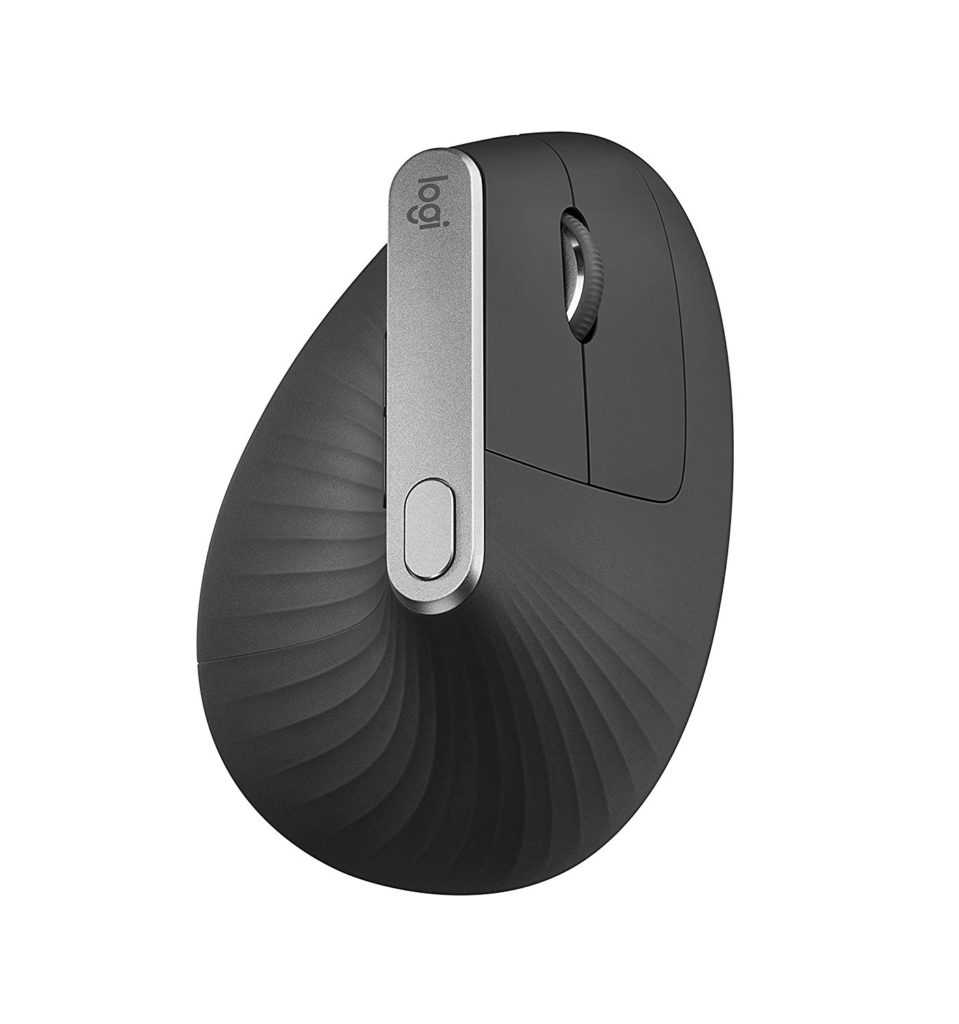
If you spend a lot of time at your computer, it is definitely worth the cost of upgrading to ergonomic accessories to help avoid carpal tunnel and posture related back and neck problems. Not to mention Bluetooth enabled keyboard and mouse options that keep your USB ports free, which is a prime real estate if you’re using a laptop.
Finally, laptop stands are a great option for small spaces as well as being budget-friendly. They can help free up space on your desk and bring the monitor up to a much better height to help reduce eye strain and prevent slouching.
5. Desk: Traditional or Standing
Hopefully, your home office is a separate room where you’re able to have a dedicated desk as part of your workspace. If not, you’re hopefully making the most out of it. Either way, you’ll have to figure out a way to work comfortably. Even with little space, you should get a dedicated desk.
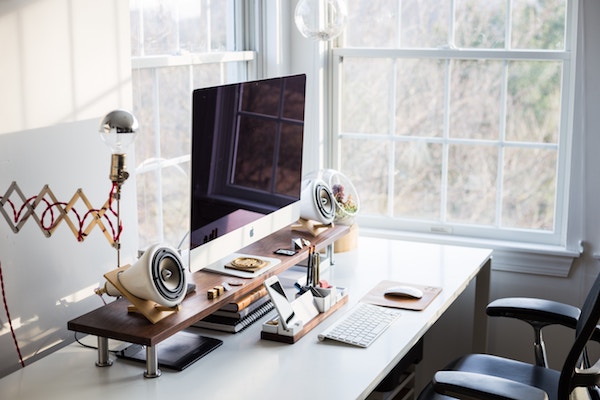
Agreed? Good. Next, think about getting either a traditional or a standing desk. For many, a standing desk is a great option to back pain, but it can be hard on your feet to stand for long periods of time. Luckily, there are many variable desks and you can find something that suits you. , for
If you already have a regular desk but want a bit of movement, there are also standup desk converters that can elevate your workspace.
Once you decide where to put your desk, take some measurements and either head to the store or search online to find something that works for you. If your desk will be small, try to find one that has a keyboard tray to free up space on the desk’s surface.
Small drawers or shelves in the desk can help free up space on the surface as well. If your desk doesn’t have drawers or shelves built in, consider hanging shelves above the desk to hold office supplies.
6. Data Backup
One of the biggest fears of anyone that works from home is losing all of your data because your computer fails. Regularly backing up your files is one of the most important things you can do to save your sanity.
There are different options out there for backing up your files. If you have a Microsoft account, you can backup your computer to OneDrive. Google has Google Drive. And there’s also Dropbox. The downside is these are limited options unless you pay to upgrade for more storage. Although, the ability to sign in from any computer to access your data is also handy.

You can purchase an external hard drive, but you can still lose that information in a house fire, natural disaster or home burglary (although some drives can take quite the beating). However, this is a cost-effective and quick way to back up your files. It’s a great idea to have multiple backups, in multiple locations to avoid losing everything should something happen.
There are also services like Backblaze that you can pay a monthly fee to have your data regularly backed up in the cloud, safely encrypted. It will run in the background and do the work for you, once you complete the initial backup process (which can take a while).
7. Fun and Functional Storage
The final piece of the home office workspace is storage. Once you have all of your supplies and you start working, you’ll need an easy way to keep things organized. The last thing you want to do is waste time looking for what you need when you need it. Additionally, keeping your space decluttered improves your productivity.
Storage can look good, as well as being functional. The options available in today’s world mean you can find something to suit your needs as well making your space aesthetically appealing. Officedesigns.com is a great resource for office necessities.
Invest in a filing cabinet. A two-drawer cabinet will likely be all you need for a home office. But, since you’ll need to start keeping track of receipts for tax purposes if you’re self-employed, and other important paperwork, a filing system will become your best friend.
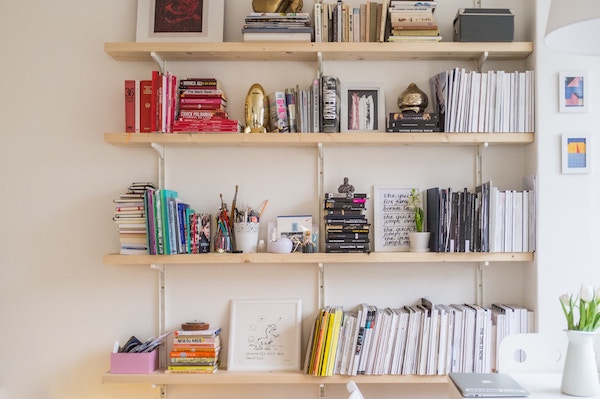
Having a bookcase or shelving will give you a place to store your supplies. Look for attractive boxes and baskets to store your supplies in, keeping them organized, but out of sight until you need them.
Finally, a fire-safe box is also a good idea. You don’t want to risk losing important paperwork that you may need when it comes time to file insurance and tax paperwork. Better safe than sorry.
We hope this list was helpful to you. What are some of the most important items in your office setup? Did you buy anything that made your life as a remote worker much easier? Let us know in the comments.


